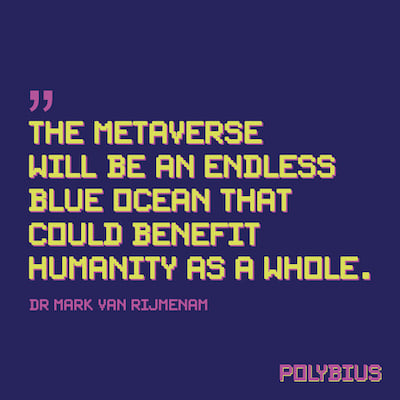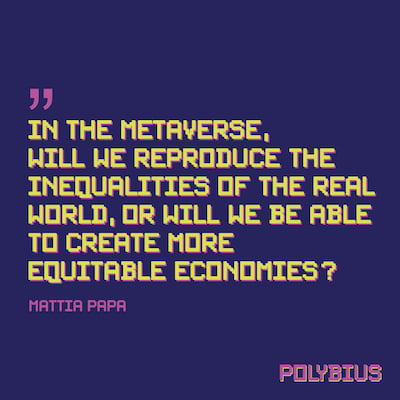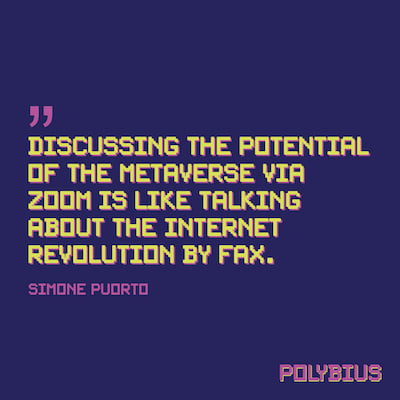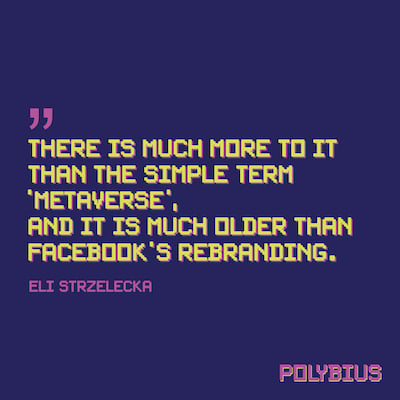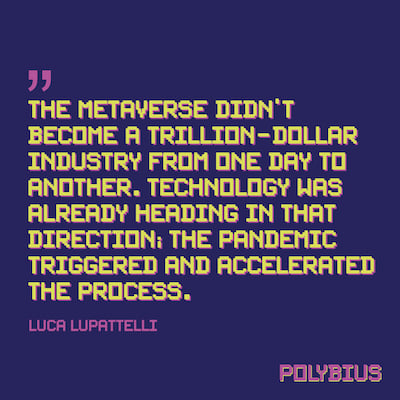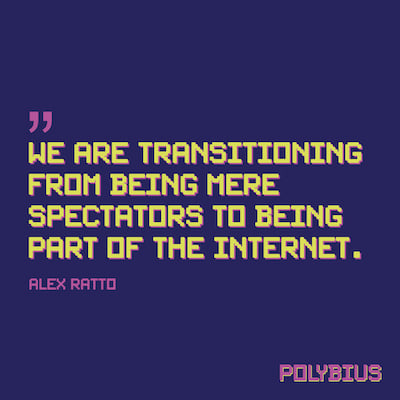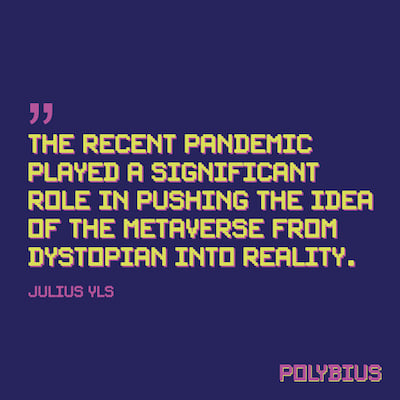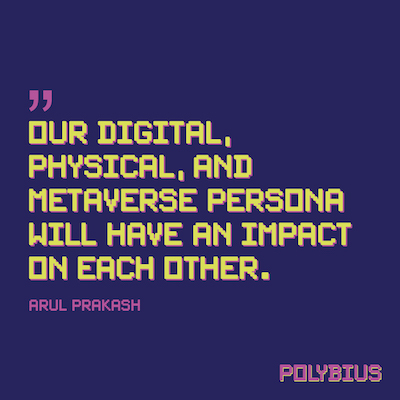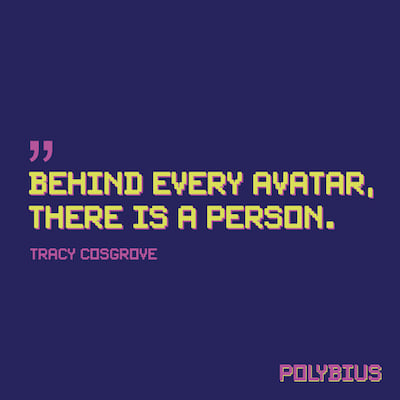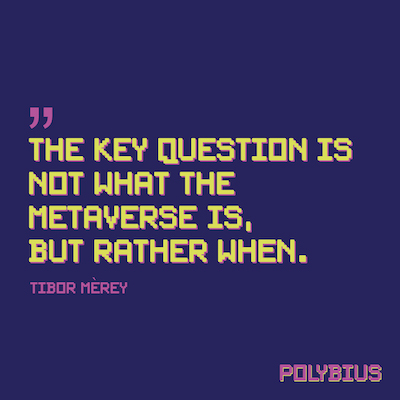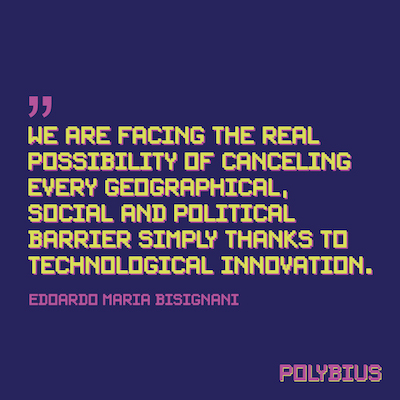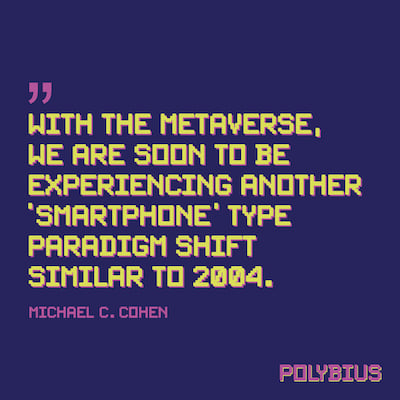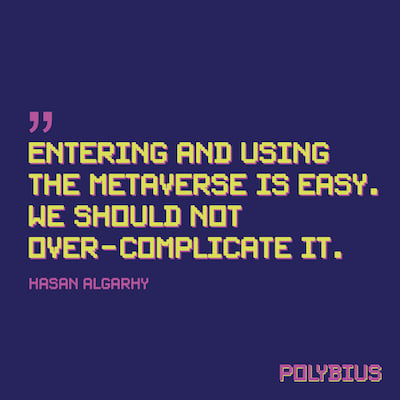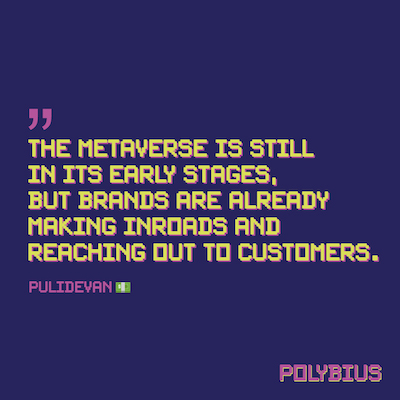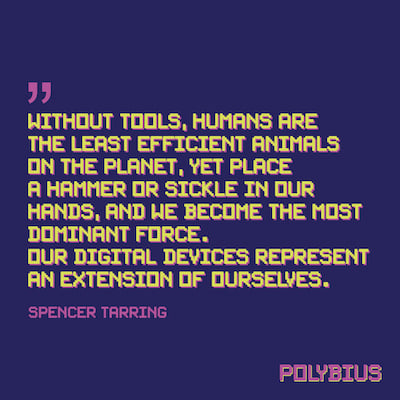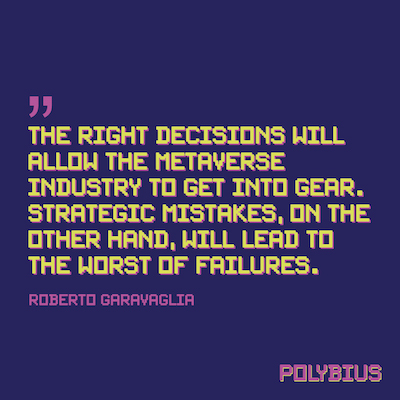Polybius – Uncovering The Metaverse In Hospitality

After the success of #HNmetameetup, the first-ever Travel and Hospitality gathering in the Metaverse, Hospitality Net and Simone Puorto, futurist and founder of the consulting firm Travel Singularity, are back with a brand new metaverse series: Polybius.
Every month, three innovators from the travel and metaverse world will join Simone for a virtual roundtable about topics such as Web3, NFT, crypto, blockchain, DAO, XR, and their current and future applications in our industry. Polybius' panelists are the very same people reshaping the metaverse economy: academics, researchers, entrepreneurs, and scientists from all over the World united to create the ultimate meta-all-stars-group.
Metaverse Glossary - Part I and II

The Metaverse is gaining increasing attention as a new platform for business, entertainment, and social interaction. However, it is still a relatively new concept, and it cannot be evident for entrepreneurs trying to understand and navigate this emerging technology. To help clarify some of the terminology associated with the Metaverse, companies need to master the "lingo." This includes becoming familiar with the various acronyms and neologisms used in the metaverse industry and the underlying concepts and technologies that drive it. By doing so, entrepreneurs can separate the hype from the business reality of the Metaverse and identify opportunities to innovate and grow their businesses.
Episodes
Recording: Davids and Goliaths in Web3: Success Stories From Leading Brands
Discover the cutting-edge tactics adopted by prominent brands within the realms of Web3 and Metaverse. From free mints to immersive experiences, gain valuable knowledge on how innovative brands continuously push limits and maintain a competitive edge in this fast-paced market.
Recording: Traveling with GenAI: ChatGPT and BARD in the Hospitality Industry
Discover the wonders of ChatGPT and BARD, two revolutionary language models with the potential to transform travel experiences. We will explore how GenAI advancements are shaping personalized trip planning, virtual travel guides, interactive storytelling, and seamless multilingual communication for travelers. Step into a futuristic world where artificial intelligence meets travel, and where the boundaries of exploration are pushed beyond imagination.
Recording: From Web2 Marketing to Web3 Marketing
In an era characterized by rapid technological advancements, the marketing landscape is profoundly transforming from the well-established realm of Web2 to the exciting frontier of Web3. Gain insights into the strategies shaping the future of marketing and discover how brands are embracing decentralization, blockchain, and emerging technologies to connect with their audiences in unprecedented ways.
Podcast Series
Polybius Intro
Polybius Evangelists Quotes
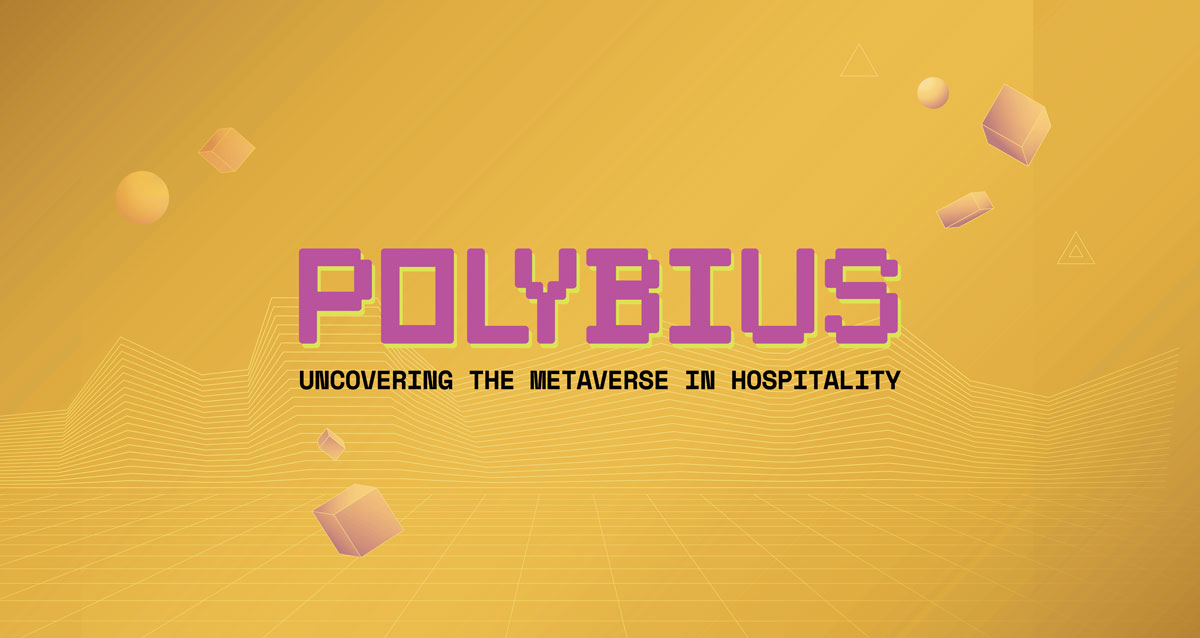 Receive updates
Receive updates
Enter your email address below to subscribe to updates about future Polybius eposodes.
